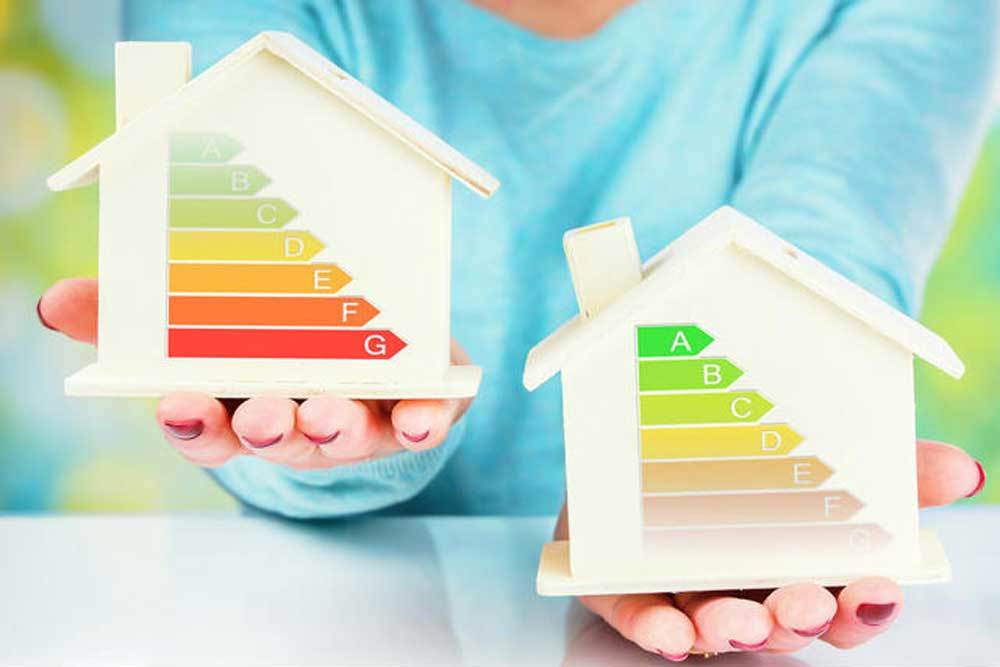
5 Energy Saving Tips Every Homeowner Should Know
Saving energy—great for both the environment and for your bank account—doesn’t have to cost you a bundle upfront. Even simple changes, such as reversing ceiling fan direction, can help you get the most out of your thermostat settings by pushing heated air down into the room, for example. You don’t need to look far to take proactive energy-saving action throughout your home.
- Get ready for the cold weather
One of the best ways to save energy is by making sure you prepare your home for the fall season. Start by preventing heat from escaping—weatherize your home by sealing leaks around doors, windows, and outlets. It costs very little, yet it can save you up to 20 percent on heating costs. Ensure your heating vents are open and unblocked by furniture to prevent heat from being absorbed where it’s not needed. Keep your water heater thermostat below 120 degrees Fahrenheit to save money on energy costs. And while replacing your furnace, water heater or windows can be among the pricier options for saving energy, in the long run, upgrading to more efficient models when you need to replace them, can help you save a significant amount of energy each month.
- Change the light bulbs
You may still be a holdout on your leftover incandescent bulbs, but switching to LED can drop your home’s lighting costs significantly, by some accounts up to 80 percent. An incandescent will last somewhere in the neighborhood of 1,000 hours; its new LED cousin can go 25,000. That’s a lot of lighting time. New LED smart bulbs offer additional features such as the ability to control blue light for better sleep, automatic timing, and remote control.
- Insulation is a game-changer
While adding insulation to your home can be one of the more time-consuming ways to weatherize your home and save energy, it can be one of the most beneficial. Home insulation protects your house from the cold in the winter and the heat in the summer and can be an effective way to reduce noise pollution as well. Energy can be lost in any direction, including through the floor, but insulating walls and your roof would cut down on most heat loss. Even adding curtains to your windows will make a significant difference—they’re not just for decoration, after all.
- Update your habits
Get in the habit of shutting off appliances you’re not using. Install smart power strips to conserve the energy of sleeping household items, which still consume power. These power strips also can allow you to program devices to turn on and off, or control their power remotely. Likewise, if you tend to forget to flick a switch, the aforementioned smart light bulbs can help by automatically turning on or off accordingly when rooms are in use or not. Smart thermostats can help automatically regulate your home’s temperature, depending on whether rooms are in use. You also can save by getting in the habit of dressing for the weather—a good sweater can do wonders.
- Cut your water heating expense
Likewise, simple changes can help you save on your water bill. Heating water up for your showers and dishwashing can be about 12 percent of your utility bill—unless you get more efficient. Getting into a mindset of changing your habits can make a big difference. Shutting off the water while you’re brushing your teeth, for example, can add up to big savings. Short showers save more water heat than taking a bath. Lowering the temperature on your water heater by 10 degrees Fahrenheit can save up to 5 percent on your bill. Washing your clothes in cold water, at least for the rinse cycle, makes a big difference.
Energy-saving tips for your home is great not only for reducing your monthly energy bill, but also for reducing the overall impact on the earth. It doesn’t take much to make positive steps toward being smarter about your individual home energy use, and at the same time, you can feel like you’re doing something positive for the planet we all call home.
